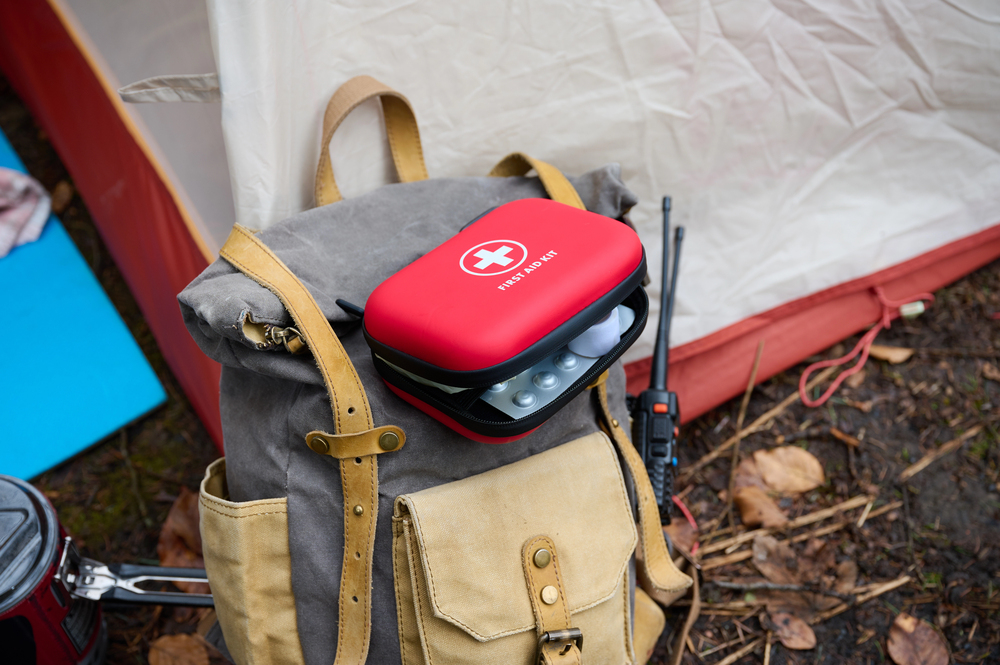Training and Assessment Delivered on Behalf of Allens Training Pty Ltd RTO 90909
Decoding Remote First Aid: What You’ll Learn in Our HLTAID013 Course.
The cornerstone of effective emergency response in remote or isolated settings is the nationally recognized unit of competency, HLTAID013 Provide First Aid in Remote or Isolated Sites. As we looked at in a previous post, this course provides essential skills needed to manage the unique challenges of responding to emergencies in Southern Queensland.
From $340 per person for public course bookings
The HLTAID013 course provides participants with skills and knowledge deemed essential for managing medical situations where immediate professional help is not available.

Understand the basics
The HLTAID013 course builds upon the foundations of basic first aid, incorporating knowledge from the standard Provide First Aid (HLTAID011) and Provide Cardiopulmonary Resuscitation (CPR) (HLTAID009) courses. As a training provider, we integrate these foundational units into the HLTAID013 program. This structure ensures that you have a solid understanding of fundamental first aid principles before delving into the more specialized aspects of remote care.
The core of the HLTAID013 course lies in its focus on remote-specific skills, which are crucial for managing emergencies when professional medical assistance is significantly delayed. One of the primary areas is extended care, which involves learning how to manage a casualty for prolonged periods, potentially hours or even days, until help arrives. This includes essential skills such as monitoring vital signs, implementing strategies to prevent the casualty’s condition from deteriorating, and providing comfort and reassurance using available resources. Unlike standard first aid, which focuses on immediate stabilization, remote first aid equips individuals to sustain a casualty over time in challenging circumstances.
Understand the challenges presented by our unique environment

Another critical component is training in managing environmental emergencies common in the Australian outback and rural Queensland. This includes in-depth instruction on recognizing, treating, and preventing conditions like heatstroke and hypothermia, as well as managing injuries from snake bites, insect stings, and dehydration.
Participants learn practical skills such as implementing cooling or warming measures and applying the correct first aid for venomous bites and stings. Understanding these location-specific hazards and how to respond effectively is paramount where medical help is not immediately accessible.
Effective communication is also a vital skill emphasized in the HLTAID013 course. Participants learn how to select various communication devices that may be necessary in remote areas with limited or no mobile phone coverage, such as satellite phones and UHF radios, as well as how to utilize personal locator beacons (PLBs) to signal for help. The course covers the protocols for relaying critical information accurately to emergency services, ensuring that help can be dispatched efficiently.
Be ready to improvise
Furthermore, remote first aid training focuses on the importance of improvisation and resourcefulness. Participants develop the ability to creatively utilize available resources and non-first aid equipment to provide care when standard medical supplies are limited or unavailable. This might involve using clothing as bandages or branches as splints, highlighting the need for adaptability and problem-solving skills in emergency situations where conventional resources are scarce.

Evacuation and transportation are also key elements of the HLTAID013 course. Participants learn how to assess the need for evacuation, prepare a casualty for safe transport, and coordinate evacuation procedures using appropriate means, considering the challenges posed by the terrain and remoteness of the environment. This includes practical skills in moving an injured person safely over difficult terrain and understanding the logistical considerations of arranging for professional rescue if necessary.
Finally, recognizing and addressing the psychological impact of emergencies is also part of the training. Participants gain an understanding of how to provide reassurance and support to a casualty who may be experiencing anxiety or distress due to the situation, as well as the importance of self-care for the first aider after a stressful incident.
The HLTAID013 course incorporates significant hands-on training and assessment. This includes realistic scenario-based training that simulates emergency situations in remote environments, allowing participants to practice their skills in a controlled setting. A key assessment component is the requirement to perform CPR on the floor, mimicking the conditions that might be encountered in a real-life emergency. These practical exercises are designed to build confidence and competence in applying the learned knowledge and skills effectively.
How to book into this training
In conclusion, our HLTAID013 accredited course provides a comprehensive and practical education in managing medical emergencies in remote or isolated sites. It equips participants with a wide range of essential skills, from extended casualty care and environmental emergency management to communication, improvisation, and evacuation techniques, all while emphasizing the importance of practical application through hands-on training. By completing this course, individuals can gain the confidence and ability to respond effectively when faced with the unexpected in remote settings. To learn more about our course schedule and how to enroll, please visit our course calendar or call us on 1300 115 193.

